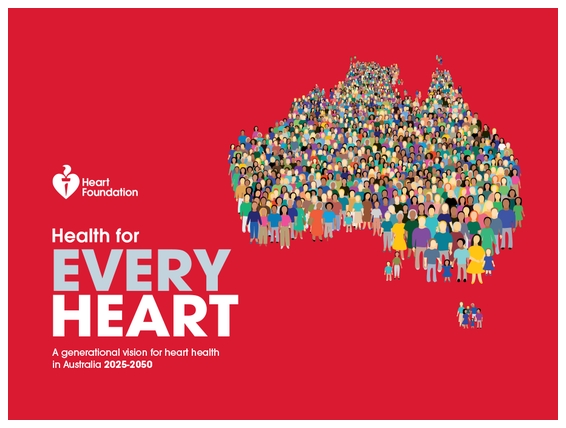
Heart Foundation appoints first-ever Entrepreneur-in-Residence
Statement from David Lloyd, Heart Foundation CEO
I am delighted to share the news that renowned inventor and medical entrepreneur, Associate Professor Mohamed (Mo) Dirani, has been appointed to the position of Entrepreneur-in-Residence – a first for the Heart Foundation.
Dr Dirani brings extensive leadership, fundraising and business experience gained Singapore, Southeast Asia and more recently China to the role. A more extensive biography can be found towards the end of this note.
This new role will help attract funding for our newly-created Innovation Portfolio of game-changing products and ideas to drive down heart disease
The Entrepreneur-in-Residence role has been created in part to build on the interest generated by the Catalyst Partnership Grant initiative. In case you missed it, the Catalyst program culminated earlier this year in the announcement of an ‘Innovation Portfolio’ of 10 breakthrough projects and technologies that with the Heart Foundation’s support are now seeking philanthropic, industry, investor and venture capital support. The aim is to accelerate innovation to keep pace with the heart health challenges facing current and future generations of people in Australia.
The Entrepreneur-in-Residence role and its purpose
But that was only the beginning: the creation of the role of Entrepreneur-in-Residence and Dr Dirani’s appointment to it represents a significant step in our commitment to this new direction. He will be tasked with providing guidance and mentorship to both the Catalyst Partners and to the Heart Foundation team in developing commercial partnerships and securing funding to support them.
Get in touch
If you have any questions or would like more information about the Catalyst program and our Innovation Portfolio, please reach out to [email protected].
Bio: Associate Professor Mohamed (Mo) Dirani
- Dr Dirani is the founder of Plano Pte Ltd, an award winning Healthtech startup headquartered in Singapore. He brings extensive leadership, fundraising and business experience gained Singapore, Southeast Asia and more recently China to the role.
- Backing up this commercial experience, he has a strong track record of translating research into real-world applications. He completed his PhD at the University of Melbourne, Australia producing the world’s largest twin study to investigate the genetic and environmental risk factors in eye disease. He has led four landmark population-based studies, including Australia’s first study to assess the burden of blindness in Indigenous and non-Indigenous Australians.
- Dr Dirani holds ten patents as a primary inventor, has published over 100 peer-reviewed manuscripts in medical journals, published several Government and industry-commissioned reports, and has received competitive scholarships, fellowships, and scientific and industry awards.
- He is an Adjunct Associate Professor at the Duke-NUS Medical School, and an honorary Principal Investigator (PI) at the Singapore Eye Research Institute (SERI) and the Centre for Eye Research Australia (CERA). He holds an MBA from the Australian Institute of Business (AIB) and is a member of the Australian Institute of Company Directors (AICD).
- In his ‘spare’ time, Dr Dirani is an avid runner and has completed 14 marathons in five countries.
You might also be interested in...
.jpg?width=560&height=auto&format=pjpg&auto=webp)
Catalyst Partnership Grants
The Heart Foundation's Catalyst Partnership Grants are bringing big ideas to life and changing the cardiovascular landscape in Australia and beyond.
.jpg?width=560&height=auto&format=pjpg&auto=webp)
Catalyst Partnership Grants Showcase
The Catalyst Partnership Grants Showcase Event will take place on 25-26th March 2025 at the Grand Hyatt in Melbourne.

Health for Every Heart
The Heart Foundation has a 25-year vision for heart health in Australia
Last updated16 July 2025